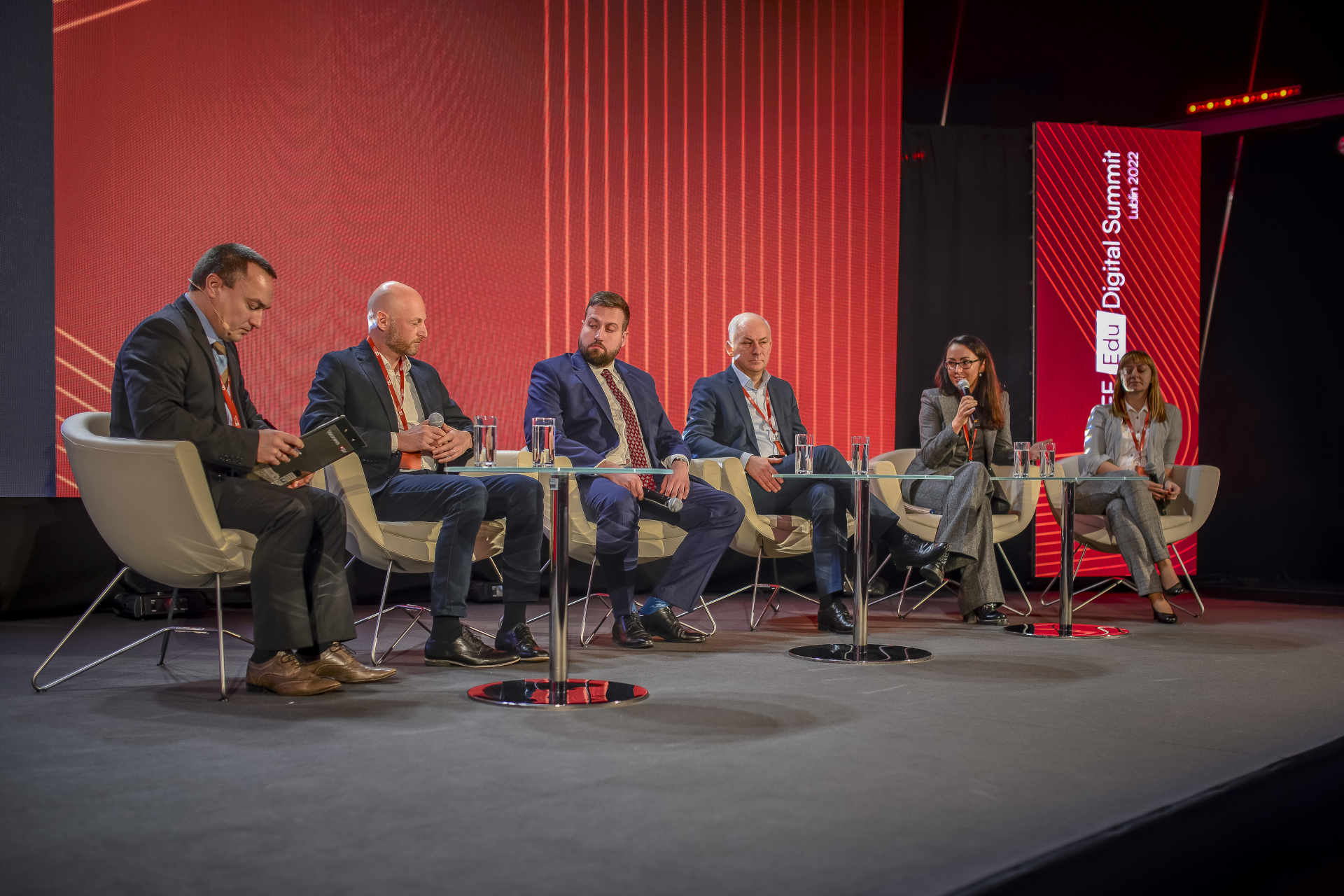CEE Edu Digital Summit: Technologies introduced into schools must be tailored to students' individual needs and problems

Technologies implemented in schools must be tailored to the individual needs of students and respond to the specific problems of the education system, agreed experts at the CEE Edu Digital Summit in Lublin. They pointed out that for this to happen, decision-makers need to listen to the needs of young people and teachers through open dialogue and research. - Technology should meet the needs, both of the market and of education – said Google representative Pawel Czerwony.
The CEE Edu Digital Summit is an event organised by the CEE Digital Coalition and the Digital Poland Association, which took place for the first time in Lublin. It was devoted to issues related to the digital transformation of education systems in Poland and the CEE region. During panel discussions, specific challenges for education were discussed, including problems related to the implementation of new technologies.
Training and collaboration are needed to properly implement technology in schools
Google's head of education, Pawel Czerwony, pointed out that while the future discussion of the digital school is likely to revolve around hardware issues or the selection of specific applications, trainings should not be forgotten. – It is clear that the training of users - teachers, school principals and students - must be taken into account – he said.
NASK representative Anna Rywczynska related to his words. - It is necessary to develop technological awareness. In order to do this, we need technologically aware staff. Thanks to our cooperation with schools, we know that there is a lack of knowledge and subject teachers are not able to implement technology as they would like. And without staff, we can't do anything – she said. – We need to be able to include young people in all these transformational processes, and to listen and see their perspective – she added
The deputy director of the Centre for Digital Transformation at the Ministry of Education, Mateusz Rafal, also spoke. He mentioned a programme carried out by the Ministry of Education, the Laboratories of the Future. The aim of the initiative is to support all primary schools in building the competences of the future among their students. As part of the campaign, equipment such as VR goggles and 3D printers, is to be provided to schools. As the Ministry of Education official emphasised, one of the programme's sources of inspiration was the Finnish model of education, which places emphasis on an individual approach to the student.
- The most important challenge is that the technology and digital solutions support the individual development of the students and are targeted at their needs and predispositions – emphasised Mateusz Rafal. In his opinion, the Laboratory of the Future "is already revolutionising issues related to modern teaching, the support of schools, and digital education".
In turn, a member of the Sejm's Committee on Digitalisation, Innovation and Emerging Technologies, Grzegorz Napieralski, listed among the transformational challenges the need for cooperation between the government and technology giants such as Google. According to him, today such companies "are these five steps ahead. - They have developed their solutions and research – he said and added that "the best solutions" should be chosen for education in cooperation with corporations.
Technology in line with students' and teachers' needs
- Technology should meet the needs, both of the market and of education. Therefore, it must be very well researched in order to respond to them effectively. Technology should keep up with the changing world: at school we need to provide tools that are relevant to the current times – said Pawel Czerwony from Google.
According to Czerwony, we now have a major opportunity on the table due to the implementation of projects such as the Laboratories of the Future. - These programmes need to be well managed; their effectiveness needs to be measured, they should be able to administer the devices from the school or local authority level and respond smoothly to what is happening in the schools – he concluded.